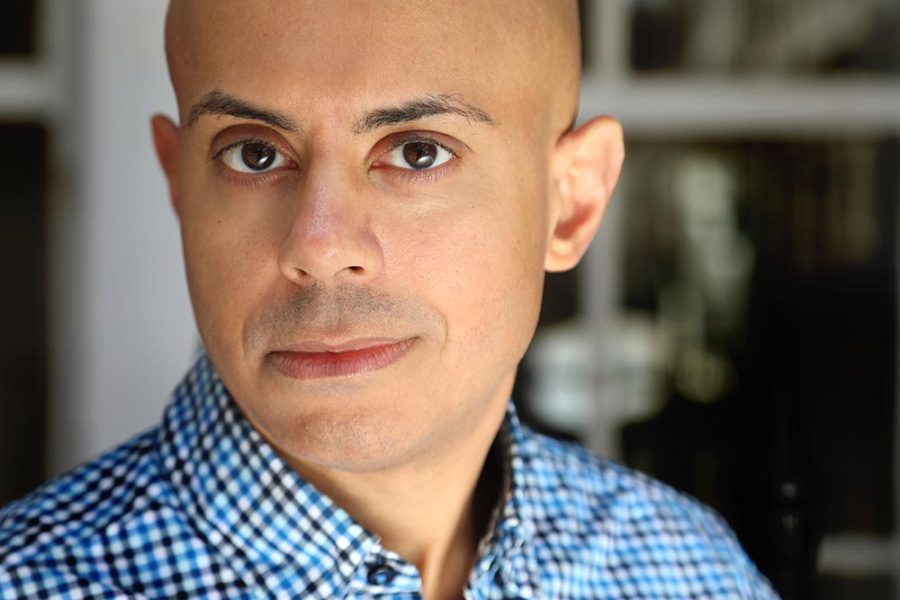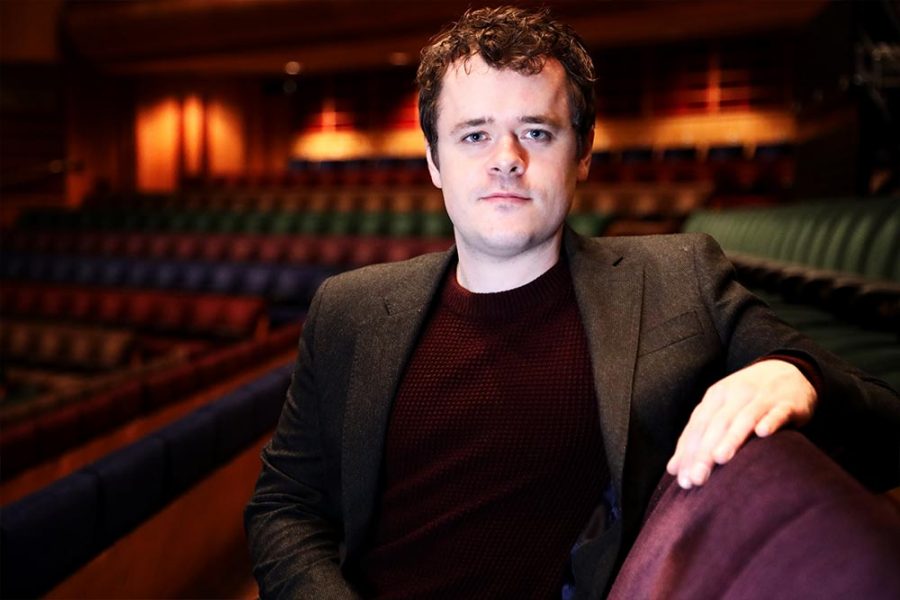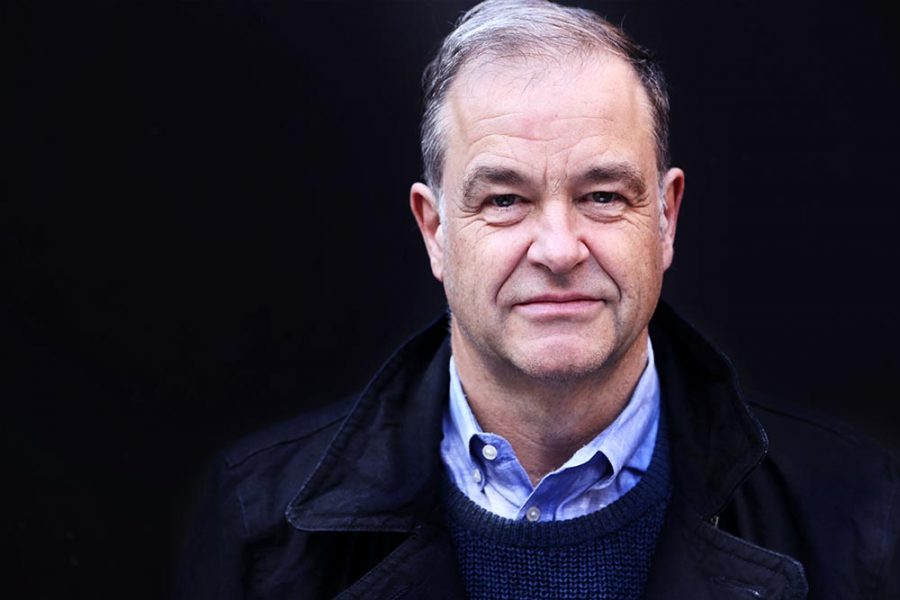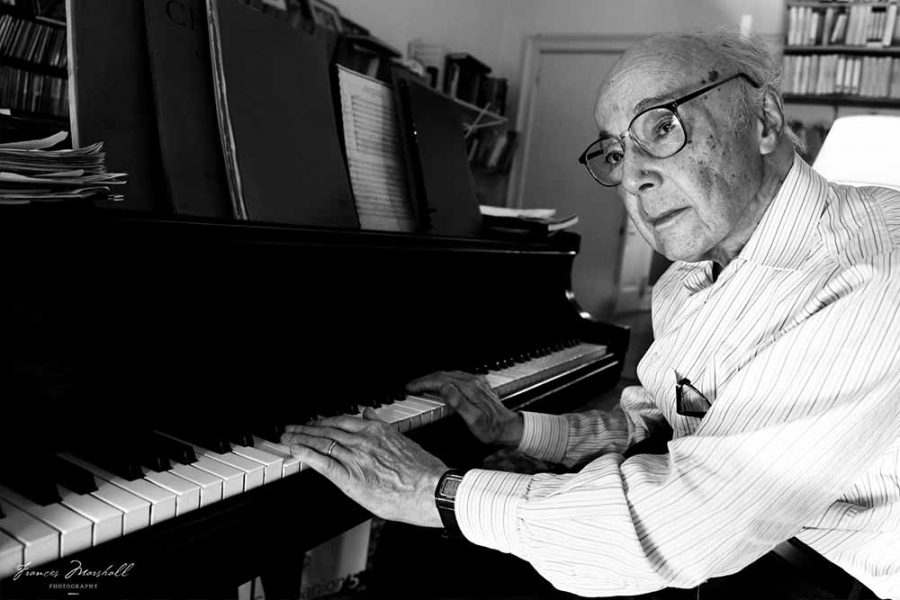The Art of Collaboration with Charles Owen and Katya Apekisheva

September 2019
Interview and photos by
Frances Marshall
Share this article
Internationally renowned pianists, Charles Owen and Katya Apekisheva, have been building a great worldwide reputation not only as established soloists but also as a formidable duo.
Offstage they founded the London Piano Festival at Kings Place, which has grown from strength to strength each year. Now in its fourth edition, Final Note Magazine met with these inspiring artists to learn about their unique collaboration and the secrets to growing a successful festival.
In ensembles when people argue I believe it’s because there’s someone in the room who is acting in a superior manner which can make the other musicians feel dismissed or not validated. We don’t have that."

How did you both meet?
C: When I was 15, an amazing group of Russian music students came to perform at the Menuhin School. One of them was Katya who was only 11 at the time. I remember her so clearly and she was exceptional. We didn’t speak to each other at the time (I had yet to learn Russian!), but years later we both enrolled at the Royal College of Music and had the same teacher, Irina Zaritskaya.
K: We then ended up in the same competitions, we just got on so well and eventually started working together. We’d help each other practice and play the orchestral part of a concerto that the other was learning which was such a huge benefit. We started toying with the idea of piano duos and it grew from there.
C: Katya brought me to Moscow and that was our first piano duo performance, it was incredible and I loved every minute. We have great chemistry and the audience could feel it too.
K: We never set out to work as a duo, it evolved naturally because we just kept getting asked to do it. We both have very demanding careers as soloists and it’s still great to mix up the process and work with Charles. Everything clicked for us when we were invited by our friend, Finghin Collins, to the New Ross Piano Festival.
What’s your approach to rehearsing together?
C: We inspire each other constantly, and surprisingly we never argue (laughs). Listening to each other is always a big priority.
K: I agree, I think the difference is that we respect each other as people and musically. In ensembles when people argue I believe it’s because there’s someone in the room who is acting in a superior manner which can make the other musicians feel dismissed or not validated. We don’t have that.
C: When we start a new piece, we actually learn it together, even if we’re sight reading and it takes longer, the outcome is always better. Then we take our own parts away and work on them separately before bringing them back together.
What would your advice be to contemporary composers writing for piano?
K: It needs to be comfortable. Difficulty is absolutely fine, but it has to be playable. However, many composers do play the piano because it’s how they write their music and that’s a big advantage. For example, working with Thomas Adès, even though it was an incredibly difficult piece, it was very rewarding when we got on top of it.
C: I think the dialogue between the players and the composer is very important. We have commissioned many wonderful composers as part of the Festival and we feel it’s important to safeguard new music for the future. In 2016 we commissioned Nico Muhly who was fantastic to work with and then Elena Langer who was phenomenal. This year we’re working with Jonathan Dove and I just can’t wait to play his piece. We’re also working with Mark-Anthony Turnage, it’s going to be a great festival.
K: The biggest danger for a festival is that it can become dull. We want it to be fresh and new, being successful is not enough. We’re constantly looking at where we can bring in new elements.
What’s the secret to long lasting ensemble?
K: It’s a relationship and a musical collaboration, along with a bit of luck that you can exist together. We both play mainly as soloists so we’re able to keep it fresh.
C: We bring extensive experience to our partnership as soloists and chamber musicians. A piece is like creating a painting, there’s the foreground, middle and background. As soloists you have to train yourself to pull back and blend, it’s something that you need to be clever about because it doesn’t always come naturally. Playing the piano is an illusion – you’re using your imagination to sound like something else.

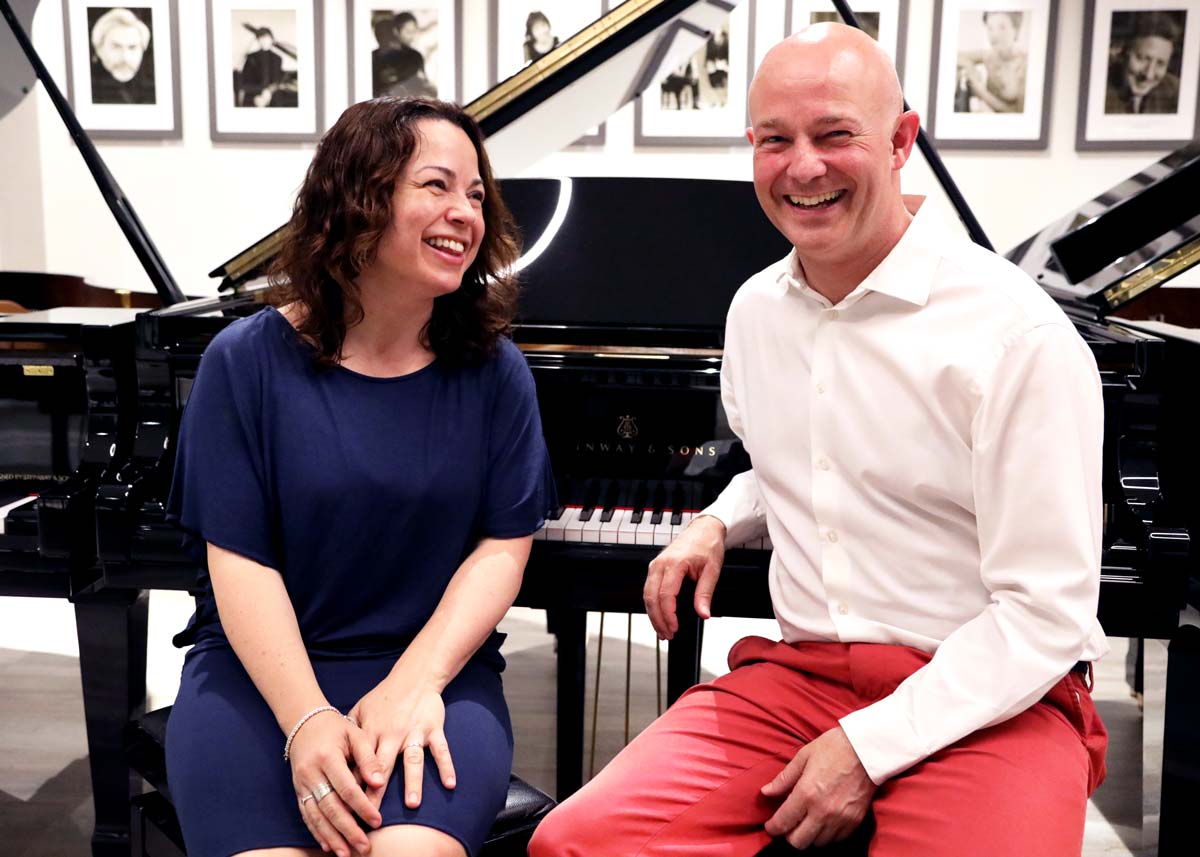


We both believe that only through discipline and structure can you achieve freedom, anything else is chaos and anarchy. Because we have this foundation we can be impulsive on stage."

You both have very different backgrounds, Charles was born in England and Katya you’re Russian-Jewish, what has this diverse cultural background given to your music?
K: The Russian pianistic school has a strong focus on the romantic style and prioritises a luscious sound. It’s a strong tradition with has positives and negatives. I’m really lucky to be part of this tradition, but there are limitations and I’ve been fighting them all my life. You have to recognise the moment when it’s necessary to say something different in your music. If Charles had to describe me, he would say that I’m quite direct and unforgiving. Russian musicians have a reputation for being tough, but I left Moscow at 16. I’ve spent way more time in the UK and I’m really influenced by West, my mentality is a fusion of both cultures. We have the same expectations of each other because we understand each other’s background and process.
C: When I began at the Royal College of Music I was a wildflower, I needed to be trimmed into shape and it was Irina Zaritskaya who recognised that, I owe her my career. I’ve had a strong Russian influence in my training and I definitely think we both meet in the middle when it comes to cultural identification. It’s hard to describe but our thoughts around discipline are very similar. We both believe that only through discipline and structure can you achieve freedom, anything else is chaos and anarchy. Because we have this foundation we can be impulsive on stage.
What makes the London Piano Festival different to other festivals?
C: There are so many chamber festivals and we wanted to focus on the piano and it’s many many forms, inside and outside of the classical world. We also want to explore jazz, poetry, and host talks on the instrument. A big priority is showcasing emerging artists and bringing them to the forefront, along with having a wide international focus on our artists and programming.
How did the festival grow?
K: In London the classical music scene is really vibrant, which means that there’s lots of competition. The audience won’t come unless what we’re presenting is exceptional. We’ve worked with a specialised PR team and have worked closely with Kings Place, building a strong team around the Festival.
C: We were also very lucky to have the support of International Piano magazine from the very beginning. Then there’s our network of sponsors, who came from us working very hard on our fundraising events. These people have allowed us to grow and we’re eternally grateful for their support.
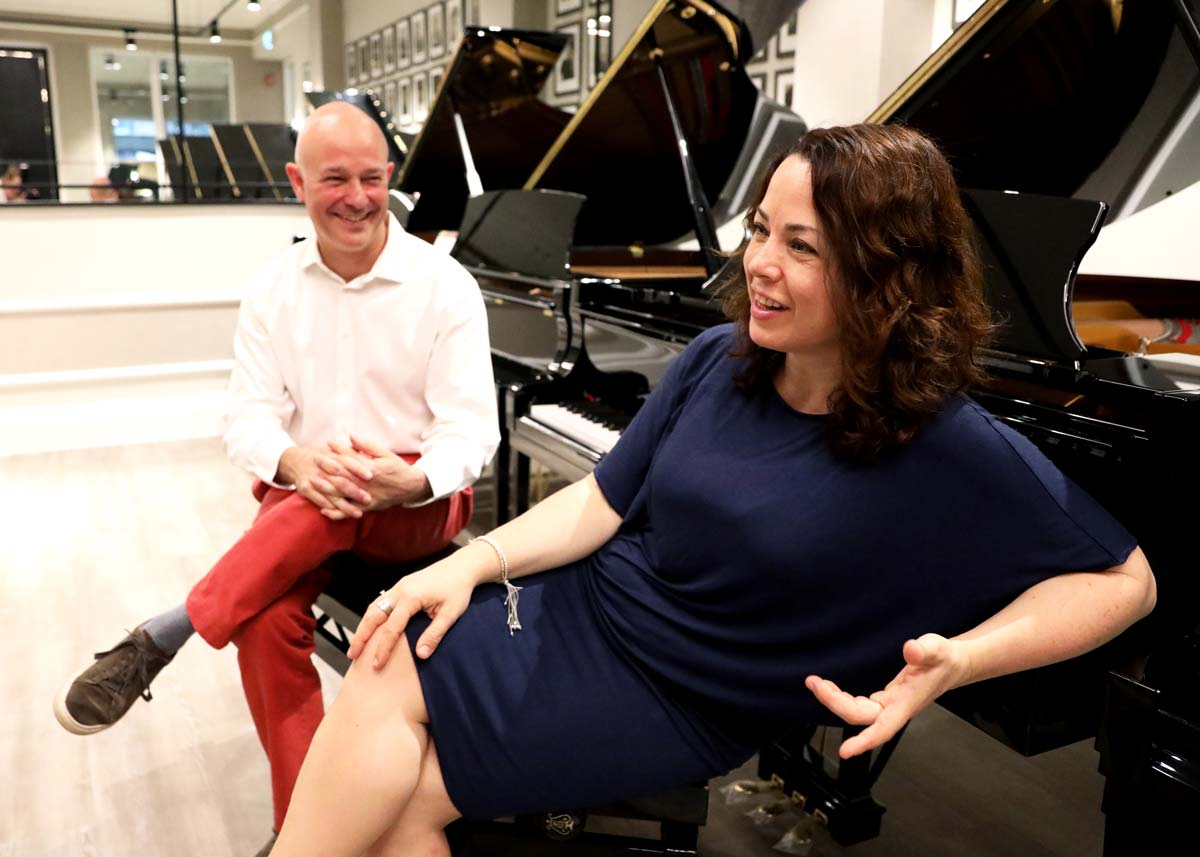


How do you ask for the money, while also handling your own careers?
K: I absolutely hate asking people for money, it’s definitely not something that comes naturally to me. But having a partnership with Charles makes it easier. If I don’t ask, the festival won’t happen and that’s the bottom line.
C: Asking for sponsorship is slightly easier when you have a functioning product. Each donor can clearly see where the money is going. It’s a five-day festival in central London, we need to purchase advertising, we book great artists – there’s no mystery. The Sunday Times and The Telegraph came on board early, which gave us huge exposure to potential donors. So many of them had heard of us before we approached them.
What are you looking forward to this year?
C: I’m really excited about Jonathan Dove’s commission along with the entire programme. I always look forward to performing with Katya and we’re playing some great music by Poulenc and Ravel. The jazz programme this year is particularly fantastic with Gwilym Simcock.
K: I love playing chamber music with soloists, it brings out completely different sides to their musicianship and I can’t wait to collaborate with Christian Ihle Hadland. It’s going to be a great occasion!
To find out more about the London Piano Festival see: www.londonpianofestival.com
All images displayed in this article are subject to copyright.
Share this article


